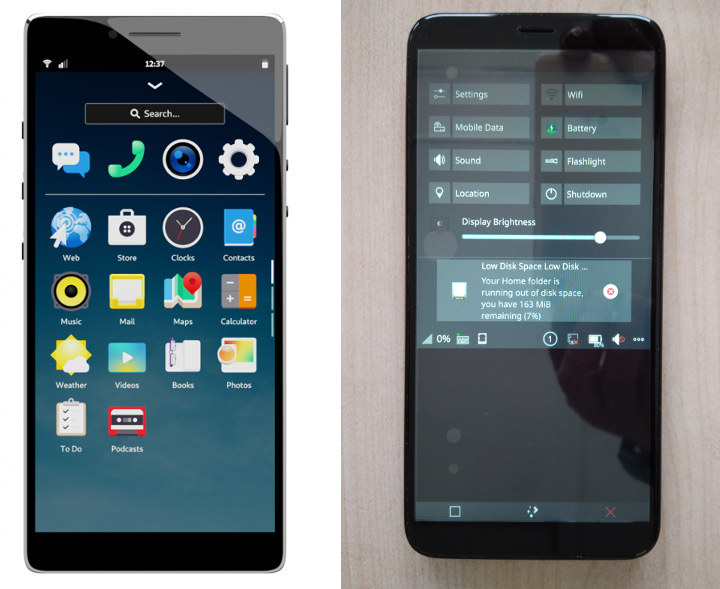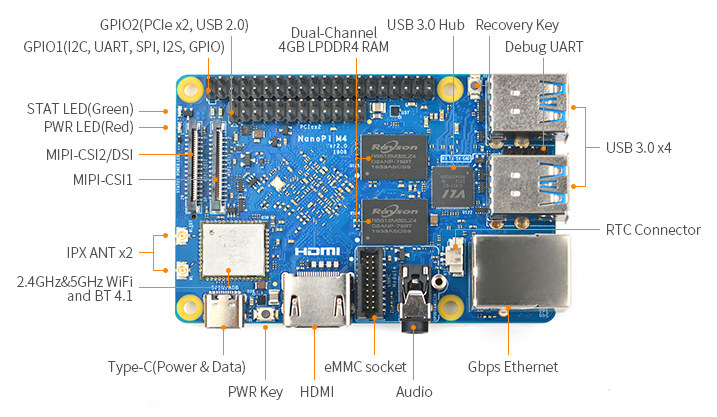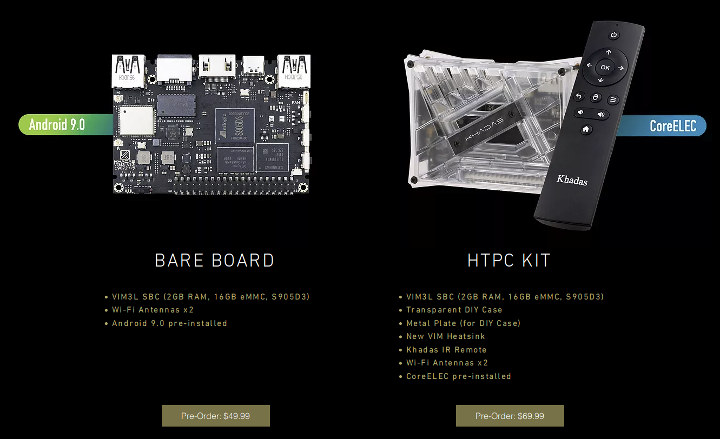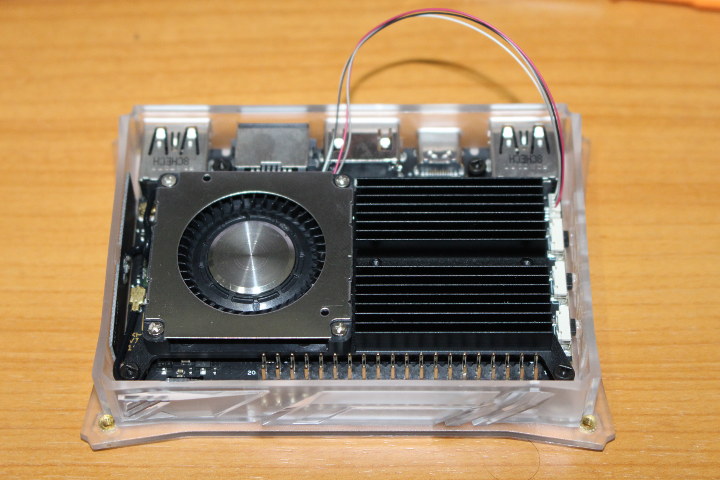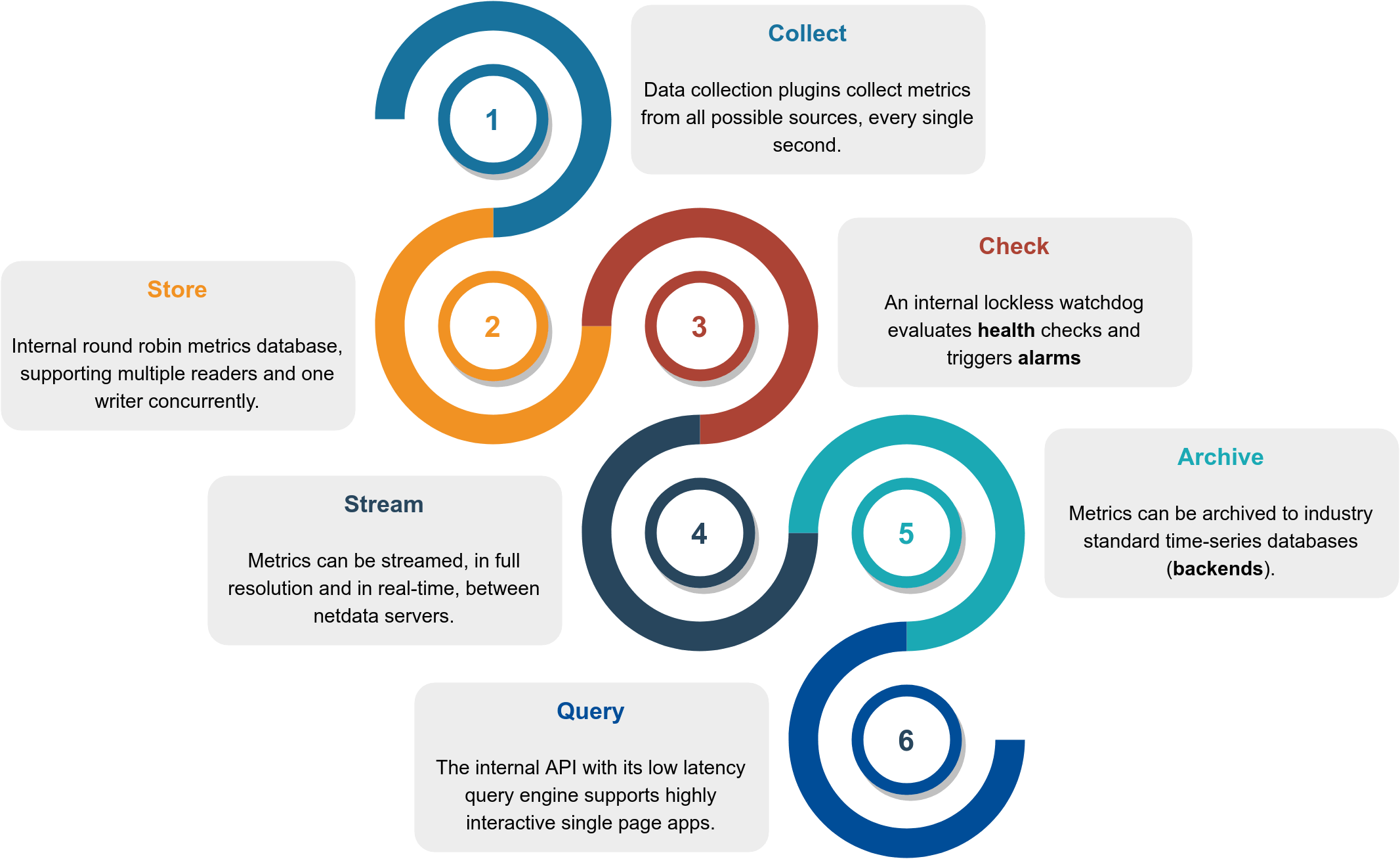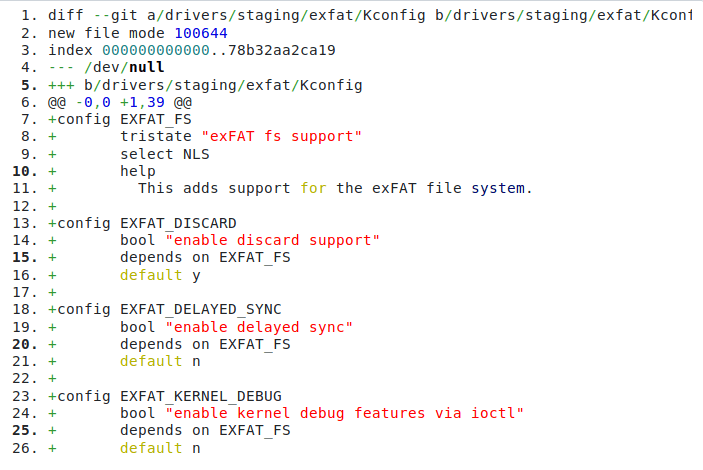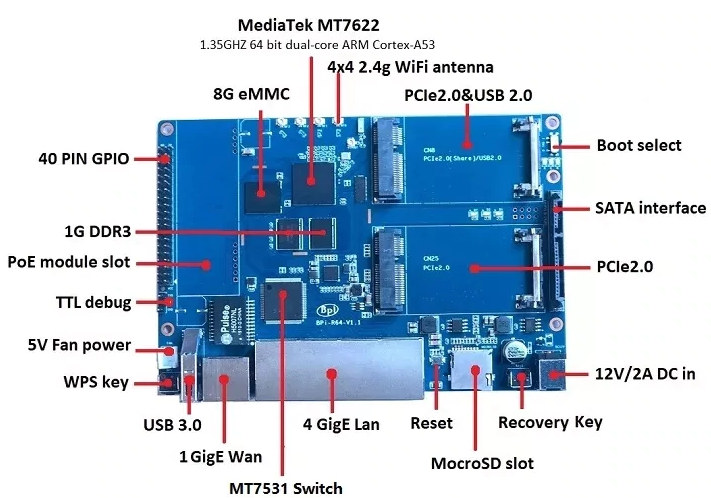There are too highly anticipated Linux smartphones currently in development namely Purism Librem 5 and Pine64 Pinephone. The first one, based on NXP i.MX 8M processor is fairly pricey ($699) partly because of better specifications, but mostly because the company handles software development internally, while Allwinner A64 Pinephone has somewhat lower specifications, but a much lower $150 price tag as software development is done by the community. Neither phones are available, and until a few days ago there were no clear launch dates. This has now changed as Purism announced Librem 5 would start shipping on September 24, while Pinephone first batch is scheduled for mid-October, which should also be the date for the launch of pre-orders, and shipment will start in November. This sounds great, but be warned the first phones will be for enthusiasts who do not mind having a few defects and missing hardware/software features, and the […]
$70 NanoPi M4V2 SBC Gets 4GB LPDDR4 RAM, Power & Recovery Buttons
FriendlyELEC NanoPi M4 is a Rockchip RK3399 single board computer that follows Raspberry Pi 3 form factor, and was launched in a year ago for $65 with 2GB RAM, and $95 with 4GB RAM. Raspberry Pi 4 introduction brought some more competition, and helped the prices drop to $50 and $75 respectively. But now the company has launched a revision 2 of the board, NanoPi M4V2 that replaces LPDDR3 memory with faster LPDDR4 memory, adds power & recovery buttons, and the audio jack now also support microphone input. It’s only available with 4GB LPDDR4 memory, and the price is lower at $70. The rest of the specifications are mostly identical: SoC – Rockchip RK3399 big.LITTLE hexa-core processor with 2x Arm Cortex-A72 @ up to 2.0GHz, 4x Cortex-A53 @ up to 1.5GHz, a Mali-T864 GPU with support OpenGL ES1.1/2.0/3.0/3.1, OpenVG1.1, OpenCL, DX11, and AFBC, and a VPU with 4K VP9 and […]
UpSwift – Manage IoT & Embedded Linux Devices Easily & Quickly
UpSwift offers a GUI based management interface to their customers to update, manage, control & diagnose IoT and embedded devices. The solution also supports OTA updates to any device which is running the Linux operating system including Raspberry Pi board and other Arm SBC’s. Because of the pull-based, client/server architecture, the client-side binary looks for updates in configurable frequent interval and executes the changes and updates. The communication between the client and the server is established over secured REST API’s. By monitoring the applications logs and other device parameters, UpSwift’s Cloud-Smart engine is capable of behaving intelligently by sending email alerts to the administrator. UpSwift Basic WorkFlow Post-registration and package selection with UpSwift Cloud-based dashboard, customers can start adding their devices into UpSwift dashboard. Depending upon the selected plans (number devices connected, features, etc.. will vary depends on the plan chosen), customers will be able to manage their products remotely. […]
Khadas VIM3L SBC up for pre-order for $50 and up, VIM1 & VIM2 Price Reduced
Shenzhen Wesion recently unveiled Khadas VIM3L SBC designed for HTPC / media center use cases. The board is based on Khadas VIM3 PCB but replaces the powerful Amlogic A311D processor by Amlogic S905D3 processor that should be just as good for video playback, but enable much cheaper hardware. Khadas VIM3L Pre-orders The board is not quite available yet, but the company has started to take pre-orders for Khadas VIM3L at discounted prices either as a bare board with Android 9.0 pre-installed ($49.99), or as a CoreELEC HTPC kit with enclosure, heatsink, WiFi antennas, and IR remote control ($69.99). Both feature Amlogic S905D3 quad-core Cortex-A55 processor coupled with 2GB LPDDR4(X) RAM, 16GB eMMC flash, and support 4Kp60 video output and playback with HDR support. Prices will increase with time as follows: September 3-16 (Early Bird) – $49.99 and $69.99 for the board and HTPC kit respectively September 17 – October 7 […]
Khadas VIM3 Linux Benchmarks and Comparison to Raspberry Pi 4
I received Khadas VIM3 Amlogic A311D SBC in early July and started testing it with Android running some benchmarks and playing games last month. I was impressed by graphics performance and overall benchmark results in Android, especially the results I got with a heatsink matched Khadas own results with heatsink + fan. So I installed the latest Ubuntu 18.04 available at the time (July 19) in order to repeat benchmarks in Linux and see how it goes. System info in Ubuntu 18.04:
|
1 2 3 4 5 6 7 8 9 10 11 12 13 14 15 16 17 18 19 20 |
khadas@Khadas:~$ cat /etc/lsb-release DISTRIB_ID=Ubuntu DISTRIB_RELEASE=18.04 DISTRIB_CODENAME=bionic DISTRIB_DESCRIPTION="Ubuntu 18.04.2 LTS" khadas@Khadas:~$ uname -a Linux Khadas 4.9.179 #73 SMP PREEMPT Fri Jul 19 09:56:46 CST 2019 aarch64 aarch64 aarch64 GNU/Linux khadas@Khadas:~$ df -h Filesystem Size Used Avail Use% Mounted on udev 305M 0 305M 0% /dev tmpfs 187M 9.5M 177M 6% /run /dev/rootfs 15G 2.6G 12G 19% / tmpfs 931M 0 931M 0% /dev/shm tmpfs 5.0M 4.0K 5.0M 1% /run/lock tmpfs 931M 0 931M 0% /sys/fs/cgroup tmpfs 187M 12K 187M 1% /run/user/1000 khadas@Khadas:~$ free -m total used free shared buff/cache available Mem: 1861 358 1100 10 402 1479 Swap: 930 0 930 |
I decided to install armbianmonitor to draw some nice temperature charts as I did with Raspberry Pi 4:
|
1 2 3 4 5 6 |
wget https://github.com/armbian/build/raw/master/packages/bsp/common/usr/bin/armbianmonitor sudo cp armbianmonitor /usr/bin/ sudo chmod +x /usr/bin/armbianmonitor sudo apt-key adv --recv-keys --keyserver keyserver.ubuntu.com 2C0D3C0F sudo wget http://goo.gl/vewCLL -O /etc/apt/sources.list.d/rpimonitor.list sudo armbianmonitor -r |
But I had some error during installation:
|
1 2 3 4 |
sudo armbianmonitor -r Installing RPi-Monitor. This can take up to 5 minutes. Be patient please/usr/bin/armbianmonitor: line 189: /etc/armbian-release: No such file or directory Now you're able to enjoy RPi-Monitor at http://192.168.1.8:8888 |
And while I can load the webpage with top menu appearing, it won’t show any data, as its name implies it may only work in Armbian. SBC Bench on Khadas VIM3 Let’s download SBC bench:
|
1 |
wget https://raw.githubusercontent.com/ThomasKaiser/sbc-bench/master/sbc-bench.sh |
Note that I had […]
Real-Time Performance and Health Monitoring Using Netdata
Netdata is a real-time open source monitoring tool, that generates hundreds of metrics of performance and health monitoring parameters. Netdata is capable of visualizing this data with real-time capabilities along with alerts and notifications. This monitoring agent can be installed in all variant of Linux systems, Mac OS, FreeBSD and in Raspberry Pi . Netdata provides options for archiving the metrics to a remote server by using TimeSeries Databases and processing engines, and can be visualized using Grafana or other tools. Architecture Overview Metrics collector Fetches various system & health monitoring parameters (uptime, CPU load, CPU usage, RAM utilization, disk usage etc.) . Fetches application metrics including web servers, databases, containers, etc… Netdata’s Internal plugins collect most of the metrics from standard Linux system parameters such as /proc, /sys and other Linux kernel sources External plugins contains ready to use plugins developed by using other programing language and interfaced to […]
Microsoft to Support exFAT File System in Linux, Releases exFAT Specification
Microsoft’s exFAT file system is quite popular for removable mass storage devices such as SD cards and USB flash drives as it’s supported in Windows, and many consumers devices such as cameras can handle Microsoft’s patented file system. The “patent” part causes an issue in Linux, as companies need to license it in order to ship it in their products or operating systems image. I recently re-installed Ubuntu 18.04 on my laptop, and if I reinsert my “test” USB drive: BTRFS, EXT-4, and NTFS partitions all mount automatically, but not the exFAT one. If I click on the partition, I get this message: That’s because Canonical does not provide exFAT by default in Ubuntu due to legal issues. It’s however easy enough for the user to install exFAT utilities
|
1 |
sudo apt install exfat-fuse exfat-utils |
The drive will mount successfully:
|
1 2 |
mount | grep -i exfat /dev/sdc3 on /media/jaufranc/USB3_EXFAT type fuseblk (rw,nosuid,nodev,relatime,user_id=0,group_id=0,default_permissions,allow_other,blksize=4096,uhelper=udisks2) |
Note that it’s using FUSE (Filesystem in Userspace), and it’s usually not a problem […]
Banana Pi BPI-R64 Linux Router Board Launched for $68
SinoVoIP introduced Banana Pi BPI-R64 router board in the summer of 2018. The Linux router board is powered by MediaTek MT7622 dual-core Cortex-A53 WiFi processor with 802.11n WiFi and Bluetooth 5.0 built-in, and offers more connectivity options namely 802.11ac WiFi 5 via MT7615 chip, as well as Gigabit Ethernet ports. 4G LTE is optional via a mini PCIe socket, and a SATA port is included for storage. At the time, I envisioned an official launch in Q1 2019, but I was off by a few quarters, as the company has only just launched Banana Pi BPI-R64 on Aliexpress for $68 plus shipping. The specifications of the Banana Pi BPI-R64 board have slightly changed since last year announcement, and we’ve got a few more details: SoC – MediaTek MT7622 dual-core Arm Cortex-A53 @ 1.35GHz with dedicated network accelerator, 4×4 802.11n and Bluetooth 5 connectivity System Memory – 1GB DDR3 SDRAM Storage […]


